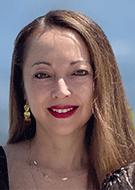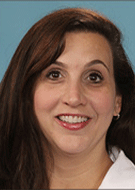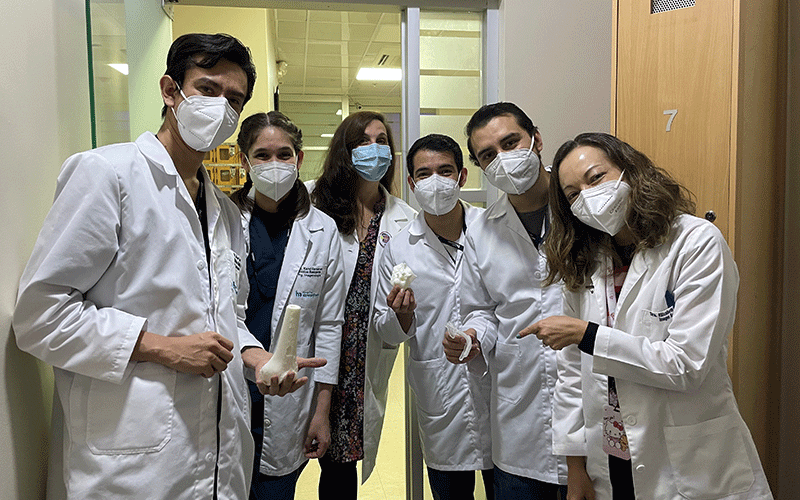Building an Infrastructure of Radiology Resources in Ecuador
Improved access to radiology education and resources provides potential opportunities, exposure for the region’s staff and trainees


Radiology education in South America is getting a boost with the newest RSNA Global Learning Center (GLC) at Hospital Metropolitano in Quito, Ecuador. The GLC leverages RSNA’s educational resources to support the work of radiology educators at the hospital located in a densely populated urban area. It also helps them in their effort to provide those working and learning in Ecuador’s more remote areas with access to augmented radiology education.
“Our goal is to provide better learning and understanding of cardiothoracic and musculoskeletal radiology, two subspecialties that are less developed within our hospital,” said GLC site director G. Elizabeth Zamora, MD. “We want to use the knowledge and resources RSNA can provide to bring this great opportunity to our small country in South America.”
Dr. Zamora is deputy chief of imaging services at Hospital Metropolitano. She is also a member of the RSNA Regional Committee for Latin America.
Dr. Zamora learned about RSNA’s GLC program from colleagues in Chile who understood the needs in Quito and encouraged her to apply.
“At the moment, there are no fellow programs in any university or hospital in our area. Residents who are able may go abroad for subspecialty training for a few months, but there are a limited few who can do this and even then, there is no formal education,” Dr. Zamora said.
Joining Dr. Zamora on the GLC team are Christian Armijos, MD, chief of the Department of Radiology, and radiologists Santiago Vallejo, MD, and Fatima Maria Egas, MD.
“We are all young radiologists involved with the residency programs and eager to learn more about what we think is less encountered in our daily work,” Dr. Zamora said. “We are also looking to gain experience in being part of RSNA and increasing our visibility through posters or articles that may be included in RSNA’s well-known radiology journals.”

According to Dr. Zamora, the team is working to get the most out of RSNA’s online resources and attending lectures presented by RSNA volunteer radiologists that benefit radiology staff and residents from the nearby Universidad Internacional del Ecuador and Universidad San Francisco de Quito.
“The best benefit for us comes from the interaction with radiology professors after the lectures when we can ask questions and discuss specific cases in greater detail,” Dr. Zamora said.
Experienced Volunteers, Spanish Language Play Important Role
To help develop a customized curriculum for the GLC in Quito, Dr. Zamora and her team are collaborating with a core team of RSNA volunteer faculty including program director Jennifer Nicholas, MD, division chief of pediatric imaging at University Hospitals Cleveland Medical Center and associate professor of radiology and pediatrics at the Case Western Reserve School of Medicine in Cleveland.
“I have been involved in global health work since medical school,” Dr. Nicholas said. “In 2017, RSNA supported a curriculum project in Haiti through an AUR-RSNA Education Scholar grant. Through that program, the radiology residents in Haiti and I worked together to build a radiology resident curriculum that could be facilitated remotely.”
Other members of the RSNA team include Jorge Vidal, MD, from the Universities of Alabama and Puerto Rico, Martha Menchaca, MD, PhD, University of Illinois at Chicago, and Daniel Vargas, MD, University of Colorado. The team’s dual-language capabilities enable them to circumvent potential language barriers and make the material more accessible by delivering lectures in Spanish.
After initially working together through video conferencing, Dr. Nicholas first met in person with Dr. Zamora and the Quito team earlier this year.
“We use WhatsApp to communicate between meetings and are using videoconferencing for bimonthly conferences,” she said.
Dr. Nicholas and the other members of the RSNA team plan to visit Quito in September and again in February 2023 as they continue to deliver content and work on the customized education plan. In line with her subspecialty, she plans to deliver pediatric-specific MSK and cardiothoracic content during future lectures.
"Our goal is to provide better learning and understanding of cardiothoracic and musculoskeletal radiology, two subspecialties that are less developed within our hospital. We want to use the knowledge and resources RSNA can provide to bring this great opportunity to our small country South America.
G. Elizabeth Zamora, MD
Providing Resources and Increasing Engagement
The GLC in Quito is one of many efforts RSNA has undertaken to build engagement across Latin America. The site will host one of three interactive events scheduled for RSNA’s upcoming Building Connections Across the Americas: Addressing Access to Radiology, a program funded by the National Nuclear Security Administration that focuses on issues of health care access, equity and radiation safety throughout the Americas.
In addition to training and improved access to educational resources, the team in Quito hopes to include some facility upgrades as part of the overall GLC program.
“It would be most useful if we can add an educational radiology classroom where we can also hold conferences and use the space to learn from cases shared with our whole department,”
Dr. Zamora said.
Dr. Nicholas anticipates helping the department develop a comprehensive radiology education program to improve patient care throughout the region.
“I hope our team’s efforts will build an infrastructure of human and physical resources that will serve as an enduring asset that radiologists in the region can tap into for years to come,” Dr. Nicholas said.
For More Information
Learn more about the RSNA Global Learning Centers program at RSNA.org/GLC.
Read previous RSNA News articles about the RSNA Global Learning Centers: